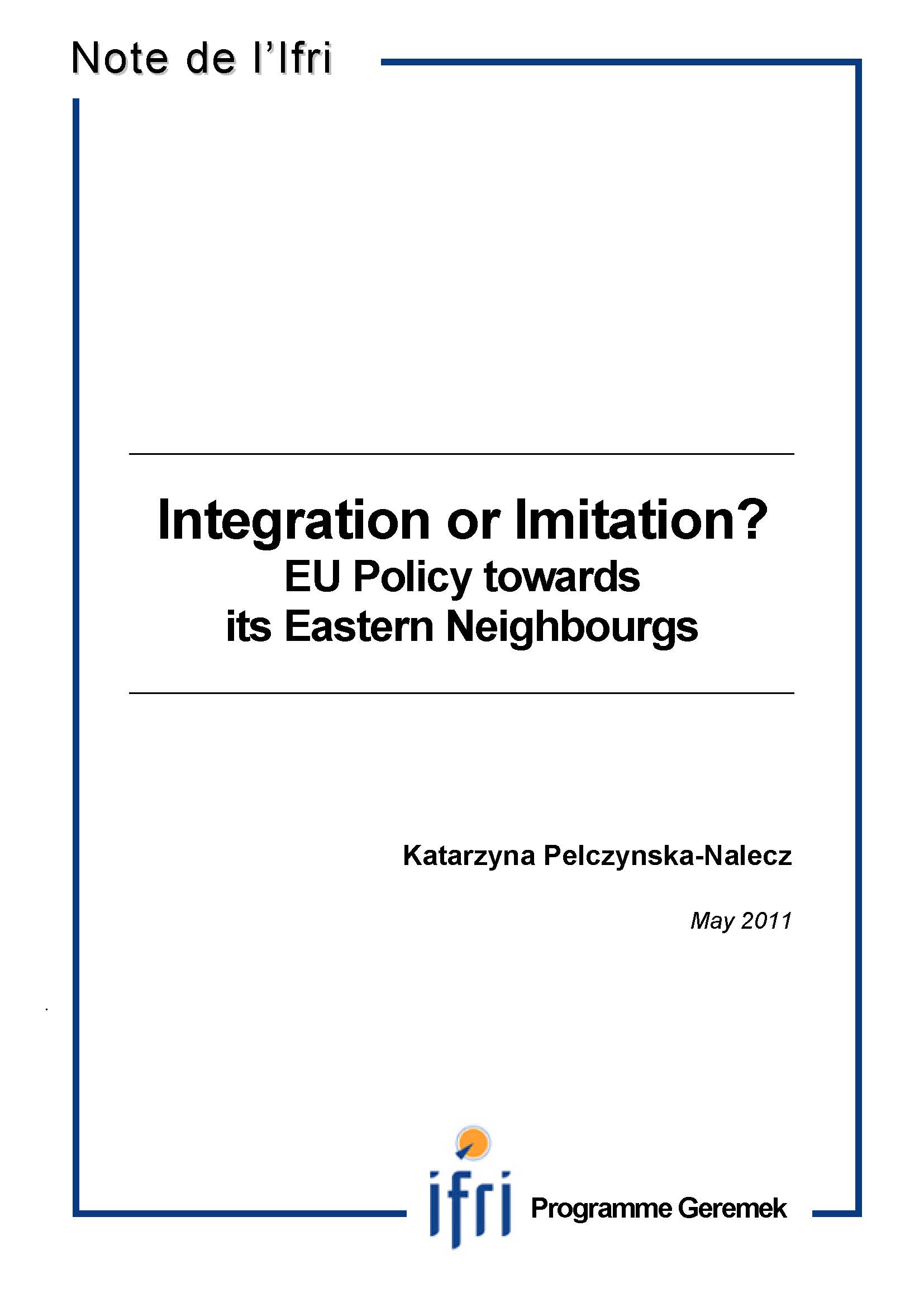Integration or Imitation? EU Policy towards its Eastern Neighbours

However, these considerations extend beyond current events and the EU calendar. There are aspects of the central question, namely: Is the EU capable of exporting its own model of governance? This question is currently more focused on the local than the global potential of the European Union. Can it continue the process of „making Europe wider‟?
This text formulates the thesis that Eastern Europe’s (EE) convergence to EU standards in political and economic terms is an enormous challenge, which requires great determination from both sides. Meanwhile, actions taken by the EU so far prove that it does not see integration with its Eastern neighbors as an issue important enough to warrant investing significant resources in this process. At the same time, however, the EU - in part to maintain its credibility or possibly due to political and bureaucratic inertia – is unlikely to relinquish its policy of promoting its own model within its immediate neighborhood. A continuation of this dual strategy may lead to a pretense in which both the EU and its Eastern partners will be merely imitating an integration. Both sides will in fact be playing this game without focusing on achieving the goal and without any hope of implementing it; Brussels in order to avoid an evident failure and cover up its weakness, and Eastern European countries in order to exploit this process for domestic political reasons and in relations with Russia.

Available in:
Regions and themes
ISBN / ISSN
Share
Download the full analysis
This page contains only a summary of our work. If you would like to have access to all the information from our research on the subject, you can download the full version in PDF format.
Integration or Imitation? EU Policy towards its Eastern Neighbours
Related centers and programs
Discover our other research centers and programsFind out more
Discover all our analysesJapan’s Takaichi Landslide: A New Face of Power
Prime Minister Sanae Takaichi has turned her exceptional popularity into a historic political victory. The snap elections of February 8 delivered an overwhelming majority for the Liberal Democratic Party (LDP), driven by strong support from young voters, drawn to her iconoclastic and dynamic image, and from conservative voters reassured by her vision of national assertiveness. This popularity lays the foundation for an ambitious strategy on both the domestic and international fronts.
The U.S. Policy Toward Taiwan Beyond Donald Trump: Mapping the American Stakeholders of U.S.-Taiwan Relations
Donald Trump’s return to the White House reintroduced acute uncertainty into the security commitment of the United States (U.S.) to Taiwan. Unlike President Joe Biden, who repeatedly stated the determination to defend Taiwan, President Trump refrains from commenting on the hypothetical U.S. response in the context of a cross-Strait crisis.

China’s Strategy Toward Pacific Island countries: Countering Taiwan and Western Influence
Over the past decade, China has deployed a diplomatic strategy toward the Pacific Island Countries (PICs). This strategy pursues two main objectives: countering Taiwan's diplomatic influence in the region and countering the influence of liberal democracies in what Beijing refers to as the "Global South."

Opening up the G7 to South Korea to Address Contemporary Global Challenges
The G7’s global influence has diminished as powers like China reshape international governance through initiatives such as BRICS and the Shanghai Cooperation Organisation (SCO). With the G7 now representing just 10 per cent of the world’s population and 28 per cent of global GDP, its relevance is increasingly questioned.








